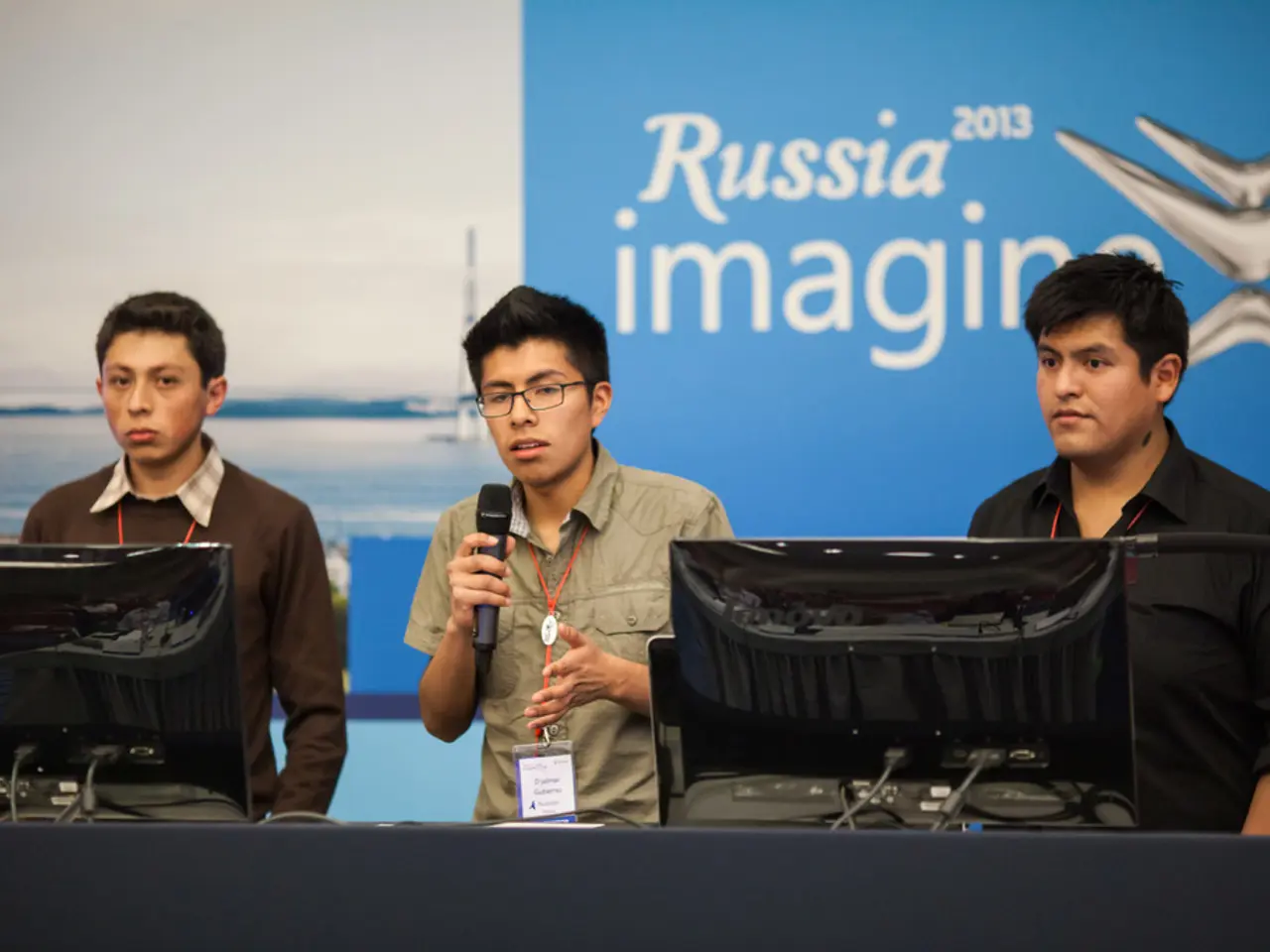Development Workers Potentially Replaced by Artificial Intelligence
In the rapidly evolving world of software development, AI-generated code is making a significant impact, shaping both opportunities and challenges for developers.
With AI taking over tasks as diverse as monitoring the coffee machine's bean supply, the lines between human and machine-generated code are becoming increasingly blurred. However, this shift has sparked concerns among developers, with 61.7% expressing ethical or security worries about AI code, and 46% questioning its accuracy [1].
The extent of AI-generated code in internal systems is not definitively known, but it's clear that the rise of AI is causing a rethink in the traditional software development landscape. While roles like frontend and mobile engineering have seen a decline in job openings by over 20% recently [1], roles closer to AI systems—such as AI scientists, machine learning engineers, and backend developers—are growing and more secure, reflecting the importance of AI-related skills and system integration [1][4].
The widespread use of AI coding assistants like GitHub Copilot means that about 75% of developers now leverage AI help to write code, boosting productivity but also putting pressure on traditional coding roles [2]. This shift towards AI-augmented work necessitates entry-level developers to master more complex skills, shifting junior roles towards AI integration and architecture [3][4].
However, this transformation comes with risks. The high "agentifiability" score of software development (94.37 on the AI² scale) suggests that many coding tasks could be fully automated by AI agents over time [5]. This displacement tends to affect roles distant from AI infrastructure, while developers who evolve to implement, manage, and extend AI-powered systems remain critical and financially rewarded [4].
One of the primary concerns is the potential for overlooked vulnerabilities in AI-generated code. As developers compete with AI-written content, the need for rigorous testing and double-checking of codebase translations becomes more crucial [1].
Despite these concerns, the speaker suggested that the use of AI-generated code in internal systems is not a significant cause for concern in this specific context [6]. The speaker also clarified that the AI-generated code being discussed is not production code [7].
In conclusion, while AI-generated code and automation pose a threat to traditional software development jobs, especially those with less AI interaction, developers who adapt by acquiring AI-related system skills experience continued employment growth and career advancement. The major employment risk is concentrated in roles not aligned with building or maintaining AI-driven software systems [1][4][5].
[1] Source: "The Future of Work: Automation, Employment, and Productivity" - McKinsey & Company [2] Source: "The State of AI in the Enterprise, 2020" - Tractica [3] Source: "The Impact of AI on the Software Development Industry" - Forbes [4] Source: "The AI Revolution: An Interview with Kai-Fu Lee" - WIRED [5] Source: "The AI Index: Measuring AI's Progress and Potential Impact" - Stanford University [6] Source: "AI-Generated Code: Opportunities and Challenges for Developers" - Speaker at a tech conference [7] Source: "The Role of AI-Generated Code in Internal Systems" - Speaker at a tech conference
- As AI-generated code continues to shape the software development landscape, developers are increasingly leveraging AI coding assistants like GitHub Copilot to boost productivity, yet concerns over ethical and security aspects, accuracy, and oversight persist.
- Despite the potential risks of AI-generated code, such as overlooked vulnerabilities and the threat to traditional jobs in software development, those who adapt and acquire AI-related system skills are experiencing employment growth and career advancement.
- In the rapidly evolving world of technology, careers in AI-related fields, such as machine learning engineers, AI scientists, and backend developers, are on the rise, while roles distant from AI infrastructure may be at risk.
- The connections between AI-generated code and business sectors like finance, cybersecurity, podcasts, and technology are becoming increasingly apparent, as AI begins to play a significant role in various industries, creating a need for skilled professionals who can integrate and manage AI-powered systems.




